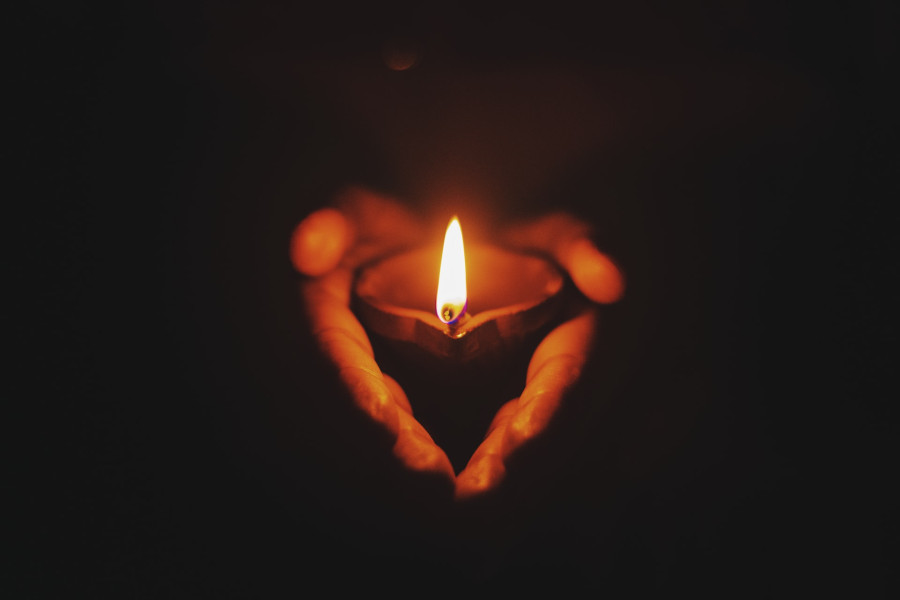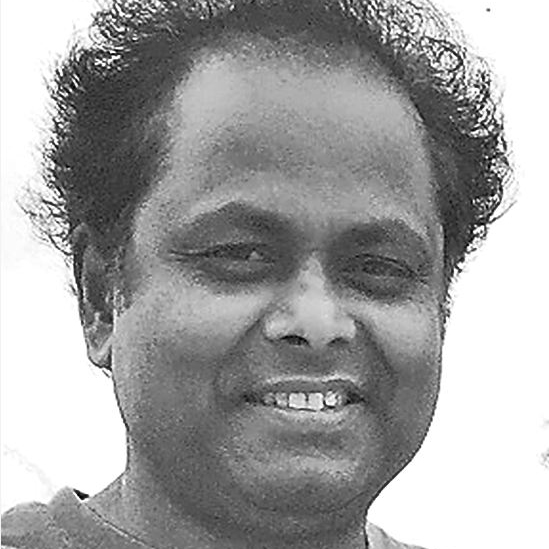Columns
Death and remembrance
Remembering three extraordinary people who have lost their lives recently.
Pramod Mishra
Three men I had known died recently. Deb Chan was our elder in my Morang village. Dr Shankar Uprety was Buwa for his son’s friends; and Hillis was none other than the J Hillis Miller, known the world over as the American proponent and practitioner of literary deconstruction.
Obituaries came out the world over for Professor Miller, and in the Nepali media for Dr Uprety. And Professor Miller’s memorial will be held in places where he worked and lived. But there is no tradition of holding memorial service among the Hindus and indigenous groups. Video clips were sent to me of the dhemali performed for our village elder. Had I been in the village, I, too, would have given dhemali for him. I, too, would have donned white loincloth and prostrated and rolled over in the courtyard mud, made of turmeric powder, yoghurt and the earth.
My friend Sanjeev, too, is following the basics of the final ritual mornings and evenings while spending much of his time in reflection. But a formal memorial will not be held, because among Hindus the offering of formal eulogies doesn’t exist. I wonder what sort of memorial would have been held for Dr Uprety. Eulogies to him by his patients of 45 years in eastern Nepal would make a history of healthcare in modern Nepal.
While Hindus hold elaborate final rites and rituals for the departed, all are ostensibly geared toward propitiating the departed soul so it can cross bhavasagar (the ocean of the world) and find an abode in heaven, which is nothing but freeing the soul from the cycle of births and deaths and achieving oneness with the eternal soul (permatman). No river of wine nor harem of virgins for the heaven-goer here, nor any milk or honey.
The emphasis is on the hereafter, not here. The world of the flesh is concerned only with purification from pollution caused by the deceased person’s body. In this configuration, the body is polluting because it is flesh and subject to decay and the soul is pure because it is eternal. But the soul carries the karma of the body to be rewarded with moksha (salvation) or condemned to repeat the cycle of births and deaths. Hindus, unless they are political stars in whose name airports, hospitals and educational institutions are named, do not formally hold memorials to offer eulogies to the departed. We make offerings to ancestors, do penance and hold purification rituals.
But given the material turn in the Hindu world, it is time we held formal memorials to recount the deeds the departed performed from cradle to cremation. This practice might improve the workings of public figures and private individuals. In this spirit of a memorial, I speak here of the three men.
I don’t exactly remember when I first went to his Big Yard, but I couldn’t stay away from it. The cause was his nephew, Karak, my childhood friend. I had shed Bhojpuri, violent manners and abusive tongue and taken to Rajbanshi and Karak’s friendship. My first baby tooth had come off while eating Karak’s guava and to my mother’s disappointment, I had broken the vow of Kabirpanth and become an omnivore. She had hoped that I would inherit the mantle of her forsaken family’s monkhood—a substitute perhaps for the permanent loss of family and clan.
But my transgression freed me to catch fish and crabs all year round. Bamboo rods and nightcrawlers came from the village groves and dung heaps and cotton thread and hooks from Bucchi’s shop. Alas, crabs and fish could never compare to goat meat, neither in taste nor in status. Twice a year (on Dashain in October and New Year in April) when Karak’s family butchered their fattened wether, a member from each meat-eating household gathered at Karak’s Big Yard. One helped in boiling the water. Another lighted the fire. The third wielded the sword and split the head of the animal from its body while two men held the hind legs and one held a rope tied to the head. Deb Chan presided over this ritual of turning the goat into meat.
At age five (and six and seven), I watched all this with apprehension. I couldn’t contribute anything to the ritual. I had no claims nor age. When the time came to divide the pile, Deb Chan obviously kept the bulk and others got their shares, marking their status. Sometimes I would get my quarter ser, but other times I returned empty-handed. ‘What else can you do if you can’t get even a quarter ser meat?’ my mother would yell and called the villagers names—heartless hoarders, brutes, Godless. She then went to Karak’s Big Yard, raising her voice and Deb Chan gave the quarter ser from his own share. Deb Chan rose in my eyes like one of those wish-granting gods in the epic shows.
Deb Chan in time married Dhakni bai (sister), Pradhan’s daughter, from our courtyard and became my brother-in-law.
As a teenager, Deb Chan had danced and sang in the Bidyapat naach in the village. Having seen the wealthier Rajbanshis of nearby villages host Mahabharat drama troupes from the borders, Deb Chan called us boys and became the director of our own drama troupe. The rehearsals, however, lasted only a few months because he saw that we had little talent for acting and dialogue delivery. He was the hardest working of the three brothers, like Wang Lung in The Good Earth, pushing back adversity by working with his field hands sunup to sundown all season long.
We lived in fear of the dacoits from across the borders. He soon bought a shotgun and defended the village. He took to hunting and became a figure of courage, romance, adventure and ambition. In later years, I called him Seth Ji as an honour for his hard work to hold on to his land and property at a time many other Rajbanshis were losing it all. In my trips home over the years, I always stopped by to see my sister and talk to him. And I had hoped I would do the same this summer.
I first met Buwa in Sanischare, in the 1980s, where he ran a private healthcare clinic for 45 years. He served the needy without charging fees. But in subsequent years, while visiting Sanjeev at his house, I got to know Buwa more. He was a conversationalist, lacing his talk with wit and humour. I remember two things he told me. He said he advised his nephew to stop having children after two daughters, arguing that sons and daughters were the same. He said he stopped after his first child. Had a daughter been born instead of a son, he would have been happy with only a daughter. I had never heard of such talk from anyone even from my own generation, let alone my father’s generation. I also remember his advice about frugality. You must always save one-fourth of your income; you will never suffer from penury. I must admit I have time and again fallen short on both counts but my efforts to do better continues. In the winter of 2019, I spent a few days with him at his house as a guest. Even in frail health and receding memory, his sense of humour never deserted him.
About Hillis, remembering him in words would amount to name dropping. I never took a class with him but he gave me a letter of introduction after our first meeting at his talk in Kathmandu. Only later would I know who he was in English Studies. He invited me to attend Derrida’s seminar at the University of California Irvine, and did his best to get me admitted there but couldn’t due to California’s funding restrictions on admitting international students at the time. I have met and worked with many noted scholars in my field but as a teacher, Hillis Miller will remain an inspiration—somebody every teacher needs to aspire to for those who come to them for learning and guidance.
May their legacy remain alive for generations.




 11.12°C Kathmandu
11.12°C Kathmandu















